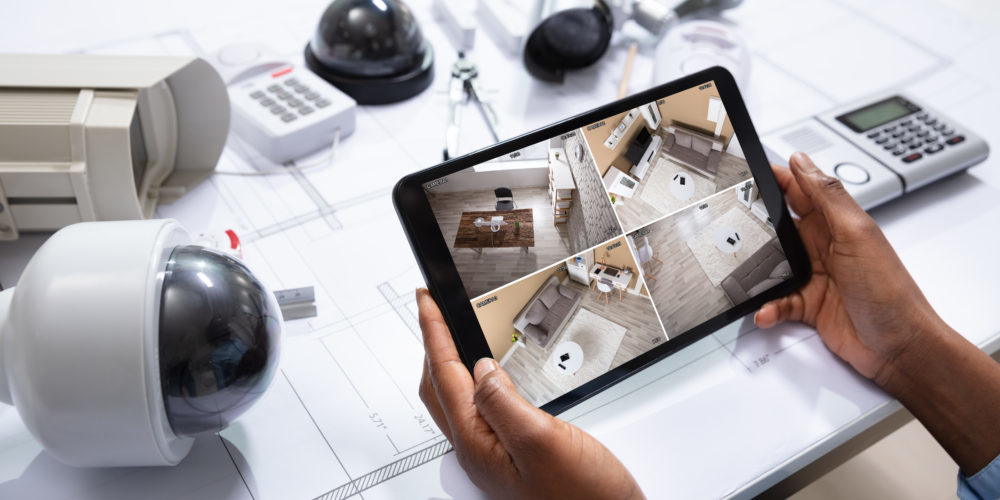Surveillance systems can help protect your business from criminal activity, such as theft, vandalism and violence.
Sometimes the presence of cameras and the associated signage can be enough to deter some potential offenders. CCTV cameras can also be used to identify anyone acting suspiciously before any criminal activity takes place, providing opportunities for prevention. Surveillance systems can also proactively support a real-time response if a crime’s being carried out, with the live images helping to reduce the likelihood of loss and harm while increasing the chances of apprehending the perpetrator. The cameras can also capture images that could go on to become vital evidence in prosecutions.
The presence of CCTV surveillance systems can be reassuring to building users, such as residents, employees and visitors too. Given these potential benefits, is a CCTV system something you’re considering? And if so, how do you identify the most suitable one?
Identifying your requirements
A careful analysis of your security objectives will help clarify if CCTV could potentially be beneficial, and what you need from the system. There might be some very specific risks, or your premises might be located in an area that’s having problems with high crime rates in general and you must step up security across the whole workplace. Maybe your site is left unoccupied for long periods of time, or perhaps the premises is open to the public, and some form of monitoring is needed to increase the security and safety of building users.
Consider whether you want a system that provides high resolution images, enabling you to recognise and identify people. Or perhaps the system’s primary objective will be to monitor a wider area, to view vehicles entering and leaving site gates for example or to detect any unauthorised activity. Either way, the system must be able to capture images that are clear enough to meet your requirements and those images must also be stored securely and easily played back when required. There are many different scenarios in which a CCTV system can be used so it’s important to establish any particular issues you want it to address.
How will the system be monitored?
You should also think about whether the cameras will need to be continually monitored, perhaps by on-site security guards, in which case the system must have both display screens and recording capabilities. Could remote monitoring be beneficial? It will allow you to check on vulnerable parts of your premises at any time of day or night, and also enable you to quickly view areas of your site if you receive an intruder alert. Alternatively, you might want to think about engaging the services of a remote monitoring centre to carry out the monitoring on your behalf.
Locating the cameras
Identify all of the vulnerable areas that the system will need to cover. Typically, they’ll include places like entrances, exits and locations where high value items are stored. Depending on your business there will be other obvious priority areas too: such as tills in retail premises.
The cameras must then be positioned to provide the best possible visibility of those areas. Make sure cameras have a clear view of all target areas; check there aren’t any obstructions such as signs or tree branches for example. CCTV images can be affected by the quality of the lighting too. If cameras are going to be positioned in areas where there are very low light levels, you will need to factor this into your choice, and review whether you can position cameras to make the most of the available light. These types of considerations will all help narrow down what you need and make sure the system you ultimately opt for provides all of the necessary functionality.
Complying with data protection requirements
If you are considering using CCTV be aware that there are rules and regulations that you must comply with in terms of the data you are capturing. Prior to installation you will need to carry out a Data Protection Impact Assessment. This must be reviewed regularly once your system is installed and when any changes are made, such as the addition of more cameras or any changes of camera positions. A reputable CCTV installation company will be able to advise you about carrying out a data protection impact assessment.
If you would like to learn more about our business CCTV services, please do get in contact with us. We would be very happy to conduct a free initial survey of your premises to help you identify key considerations specific to your site and explain more about the various options available.
